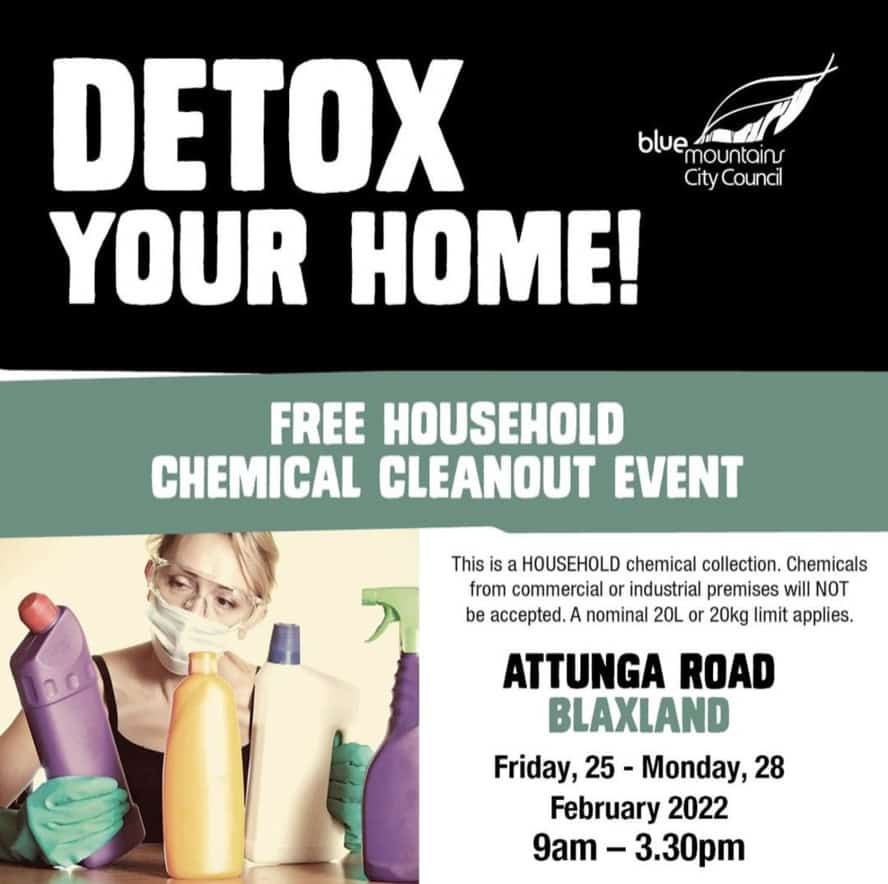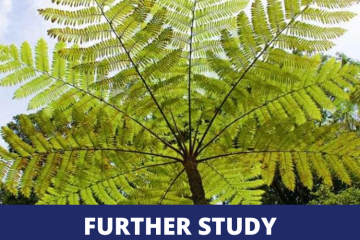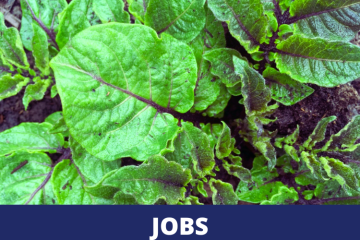February 21

There is no away!
One of the most powerful statements I ever heard was You can’t throw anything away, there is no away! It’s a strong argument for stopping the production of toxic and poisonous substances so they won’t eventually enter our air, soil and waterways. Every time there’s a flood or a fire I dread all the poisons in people’s houses and sheds entering the air and/or the floodwaters and then our soil. Even cans rusting and leaking, or accidental spills, can mean they enter our stormwater and then the natural systems supporting us all.
Fortunately, times are changing, and more of us are avoiding these toxic substances, but not long ago they were common place and many sheds still have old containers of them … often rusting away.
A couple of years ago I inherited crates of gardening materials which also included lots of pesticides, herbicides, fungicides and surface sprays that I’ll never use. We’ve also renovated our house over the years so have cans of paint with bits left in them.
I was thrilled to read that Blue Mountains City Council is hosting a Free Household Chemical Cleanout event this coming weekend: Friday 25 – Monday 28 February at Attunga Rd Blaxland. My new action for today was to search every nook and cranny for whatever I could take to Blaxland on the weekend to be safely disposed of.
In one of Council’s waste audits it was apparent that households are still throwing hazardous materials into the red garbage bin. The most common hazardous item found in the red bin was batteries, followed by electrical items, clinical waste, chemicals, paint, fluorescent tubes, mobile phones and toner cartridges. These items require extra treatment and expense to protect the local environment.
Many chemicals are recycled while others are treated for safe disposal.
For example:
- Leftover paint is mixed with other solvents and used in cement manufacturing. The metal paint tins are recycled.
- Any remaining gas is taken out of gas cylinders and the steel in the bottle is recycled. Many bottles are returned to the hire market – so they’re reused rather than recycled.
- Lead, acid and plastic in batteries are recovered and recycled.
- Fluoro tubes, which contain mercury, are crushed to separate the phosphor powder from the glass. This powder is processed to capture any mercury, which is then sold for a range of industrial uses. The leftover glass and metal are put back into the recycling system (via City of Sydney)
What can I take to a Household Chemical CleanOut event?
You can take household quantities of the following household chemicals and items – up to a maximum of 20 litres or 20 kilograms of a single item.
- Solvents and household cleaners
- Floor care products
- Ammonia-based cleaners
- Pesticides and herbicides
- Poisons
- Pool chemicals
- Hobby chemicals
- Motor fuels
- Fluorescent globes and tubes
- Acids and alkalis
- Smoke detectors
- Paint and paint-related products
- Gas bottles
- Fire extinguishers
- Car and household batteries
- Motor oils and cooking oils
83% of items taken to a Chemical CleanOut event can be dropped off at Katoomba RRWMF for FREE all year round.
Please remember to take note of the following details for the event:
- Wear gloves when handling chemicals and separate each item and label any unknown chemicals ‘unknown’.
- Wrap containers in newspaper, place them in a plastic bag and keep items stable and upright in your car (for example in a bucket) as you are responsible for any spills in your vehicle.
- This is a household collection so chemicals from commercial or industrial premises will not be accepted and a nominal 20L or 20kg limit applies.
- For all Chemical CleanOut events please bring proof that you are a Blue Mountains resident, such as your driver’s licence or rates notice.

Join #AYearInADay Citizen Science Project to see if we can all inspire one another to do more to restore planetary health
We’d love you to collaborate with us and share any actions you take to restore planetary health in the comments below or on our social media. While we welcome you to share ANY ACTION you take to inspire others, we’ll be recording NEW or EXTRA actions that people take as part of our tally, because we’re trying to inspire one another to do more than we’re already doing. Feel free to copy some of the actions our participants have been sharing – the action only needs to be NEW for you. Let us know if other people are influenced by your posts, or ours, so that we can measure outcomes of this project. To leave a comment on this blog you’ll need to enter your name and email address.
Our first step is to record 365 new actions. Our second step will be to aim for 365 new actions in one single day. Imagine if we could do it every day of the year! You can subscribe to receive a daily action from us here



0 Comments